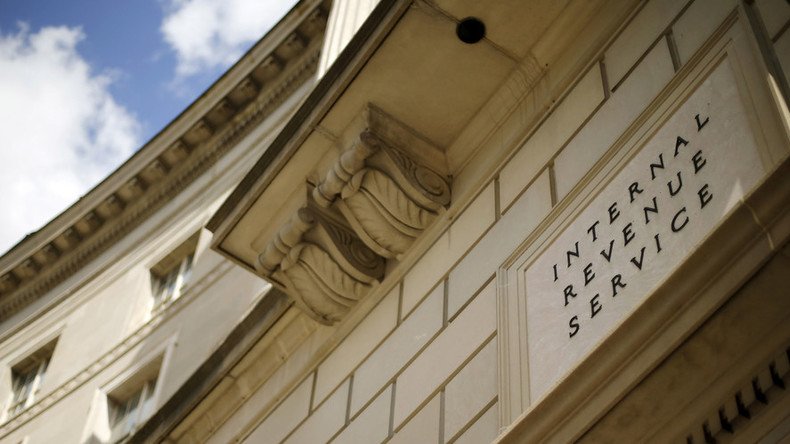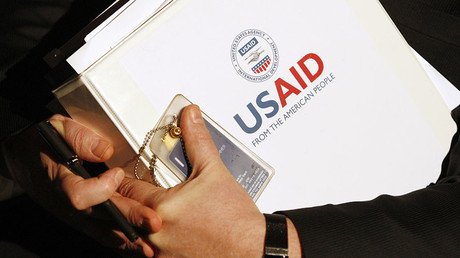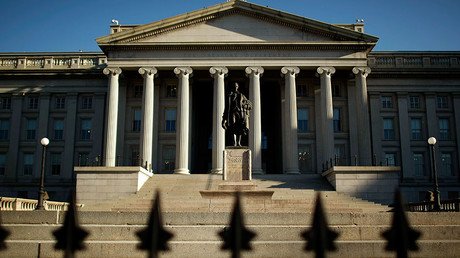'The new Switzerland': US fights tax evasion abroad while being a tax haven at home

Within days of the Panama Papers being leaked, Washington announced it was launching a crackdown on corruption abroad. However, while the US is declaring its intention to fight tax evasion around the globe, it is actually fostering tax havens at home.
On Tuesday, the US Justice Department’s Criminal Division announced it would be enforcing its program to target violations of the Foreign Corrupt Practices Act (FCPA). Under the pilot scheme, the authorities want companies to reach out to them, if they suspect that their employees bribed foreign government officials.
Assistant Attorney General Leslie Caldwell, the head of the Criminal Division, stated that the move will help prosecutors to crack down on corruption abroad, even if this means that companies who cooperate are let off the hook.
The size of the department is to be increased with 10 additional prosecutors added to the FCPA Unit, while the FBI has established three new squads who will be devoted to FCPA prosecutions.
“This should send a powerful message that FCPA violations that might have gone uncovered in the past are now more likely to come to light,” the statement issued by Caldwell read.
While the motives are noble in trying to tackle the scourge of corruption, its timing raised a few eyebrows, coming days after the leak of 11.5 million confidential documents in what is known as the Panama Papers.
US President Barack Obama said on Tuesday that “Tax avoidance is a big, global problem.” He also criticized laws “so poorly designed” that loopholes allow companies to avoid responsibilities ordinary citizens have to abide by.
The spotlight fell on one world leader and then another, but what became apparent as the dust settled was the apparent lack of any major US companies or figure heads in the Panama Papers leak.
“Of course they have to put in some American individuals and some American companies in order to camouflage the whole thing, but those are only minor players,” Ernest Wolff, a journalist and author, told RT. “The big people in there are non-American citizens – they are Europeans and from countries all over the world.”
Wolff was alluding to the fact that rather than putting their money in offshore schemes, Americans were being encouraged to deposit their wealth into accounts on US soil.
“The states of Delaware, Nevada, Wyoming and South Dakota are the new Switzerlands of this world. They are tax havens that guarantee people banking secrecy which surpasses that of Switzerland and Luxembourg,” Wolff mentioned.
According to Shruti Shah, the vice-president of programs and operations at Transparency International, an anti-corruption organization, the reason so many people are opting to leave their money in the US is due to the ease of opening an account.
“In every state in the US, you can incorporate an LLC – [a limited liability company] – or another legal entity and you don’t have to disclose who the beneficiary on it is. In fact, Delaware is so synonymous with anonymous companies and ghost corporations that it was named in Transparency International’s Unmask the Corrupt campaign as one of the most symbolic cases of corruption,” she told the Guardian newspaper.
She says that less documentation is needed to open a shell account than is needed to obtain a driving license or a library card.
As shown, the Panama Papers revelation has conveniently led to the US saying they will crackdown on FCPA violations. However, Wolff believes this is almost a veiled threat by the US authorities to ensure that both domestic and foreign money is kept in America.
“The Americans have confessed to fighting against tax evasion but they have opened up their accounts to foreign money. What they are doing is they are blackmailing people around the world because nobody knows if they will end up on that list and the only way they can avoid being on that list is by putting their money into the new tax havens of America,” Wolff told RT.
Panama not only tax haven to have on radar. Don't forget U-S states like Delaware, Wyoming https://t.co/TW1Z2BfxiBpic.twitter.com/P15n1yqFRh
— Ameera David (@AmeeraDavid) April 6, 2016
Delaware may be one of the smallest US states; however, it is leading the way in registering some of the country’s top companies, such as Coca-Cola, Google, Wal-Mart and American Airlines.
The New York Times reports that nearly half of all public corporations in the US are incorporated in Delaware. In fact it has more corporate companies than people living in the state – 945,326 to 897,934. According to Anthony Travers, chairman of the Cayman Islands Stock Exchange, the level of secrecy in Delaware is astounding.
“You can have companies in Delaware that have no US bank accounts, no requirements for documentation and no one knows who owns them,” he told the New York Times. “There should be a level playing field and Delaware should have to comply with the same standards as the Caymans.”














